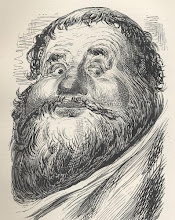Who Made God?
It is a question often asked by children but seldom asked by adults. It is a good question, nonetheless, for it presumes something which I would like to discuss in this post. What it presumes is known as causality or what you and I know intuitively as cause and effect.
How and why are questions we have been asking since we were old enough to speak. The very questions themselves demonstrate this intuitive knowledge of cause and effect within us. There is a reason for everything, and just as there is a reason for everything there is also a reason for everything that is . . . to be.
 We know this both intuitively and by our experience. Every effect must have a sufficient cause. Things do not happen for no reason. Effects do not spontaneously come into being. There is a cause. How did this milk get on the table? It was spilled when a glass was knocked over. How did the glass get knocked over? It was knocked over by Jimmy's elbow when he was reaching for the mashed potatoes. How did the milk get in the glass? It was poured there by mom. Where did she get it? She got it from the gallon jug which was in the refrigerator. How did the jug get into the refrigerator? Dad brought it home from the store and put it there . . . and so on ad infinitum.
We know this both intuitively and by our experience. Every effect must have a sufficient cause. Things do not happen for no reason. Effects do not spontaneously come into being. There is a cause. How did this milk get on the table? It was spilled when a glass was knocked over. How did the glass get knocked over? It was knocked over by Jimmy's elbow when he was reaching for the mashed potatoes. How did the milk get in the glass? It was poured there by mom. Where did she get it? She got it from the gallon jug which was in the refrigerator. How did the jug get into the refrigerator? Dad brought it home from the store and put it there . . . and so on ad infinitum.How long could we play that game? How far back does our chain of cause and effect go? That is the question at hand and the answer to that question is a valid, effective, and reasonable argument for the existence of God.
For the universe to exist there must be a sufficient cause outside of that universe to account for its existence.
Either that or you must confess that there is an infinite chain of cause and effect, that we could play our little game for eternity and never come to a first cause. But would that be logical? Theists contend that it is not and here is why.
I pose the question to those who might contend that there is no first cause, that our chain of cause and effect goes infinitely into the past. What caused that chain of events? Something did. An infinite series with no beginning involves a contradiction. It goes against the assumption that allows for the existence of the chain in the first place, to wit for every effect there is a cause.
We have a universe. That universe consists of matter and energy. It consists of space and it consists of time. What caused those?
While science cannot answer that, philosophy says that something must have caused them or they could not be.
And that is where it stands. Either you believe that matter is eternal, that it has always been, for it cannot have spontaneously generated, or you believe that there is an extramundane cause that brought it into being. The same for energy, time, space, and life, for none of those things can be explained as having been spontaneously generated without a cause.
An infinite chain of cause and effect is a logical absurdity. If a chain of three or four events cannot exist without a sufficient cause then no chain of events can exist without a sufficient cause, even if it is a chain of a million or a billion or a trillion events. As Charles Hodge put it,
"Nothing multiplied by infinity is nothing still. If we do not find the cause of our existence in ourselves, nor our parents in themselves, nor their progenitors in themselves, going back ad infinitum is only adding nothing to nothing. What the mind demands is a sufficient cause, and no approach to it is made by going back indefinitely from one effect to another. We are forced, therefore, by the laws of our rational nature, to assume the existence of a self-sufficient cause, i.e., a Being endued with power adequate to produce this ever-changing phenomenal world. In all ages thinking men have been forced to this conclusion. . . . The theistical argument is, that if everything in the world be contingent, this eternal and necessary Being must be an extramundane First Cause."Which brings us back to our original question. Who made God? And the answer to that question is that no one did, for he is the uncaused First Cause. Without him nothing else in the universe makes sense. Without his existence, nothing else can exist. While everything in our universe is contingent, he is the Something standing outside that universe which is self-existent and contingent on nothing else.













1 comment:
BTW, this is known as the cosmological argument.
Post a Comment